When to dig up Jerusalem artichoke, how to store it correctly, can it be frozen?

Jerusalem artichoke refers to unpretentious plants that do not require special care. So, all you need to do is plant the tubers and moisten the soil from time to time. However, it is important to respect the harvest dates, i.e. You will need to know when to dig up Jerusalem artichoke.
Content:
- Harvest time - when to dig up Jerusalem artichoke
- How to plant Jerusalem artichoke correctly
- Recipes for preparing for the winter, is it possible to freeze Jerusalem artichoke
- Jerusalem artichoke in folk medicine
Harvest time - when to dig up Jerusalem artichoke
One of the main features of the root crop is the fact that it perfectly tolerates winter cold in the soil. It does not freeze and does not deteriorate even with strong temperature fluctuations, if you sprinkle the plantings with fallen leaves or dry grass in advance.
However, the harvest is often harvested in the autumn. But in this case, it is better to finish collecting before the first frosts and rains, since they can significantly complicate the assembly process.
It is also important to consider that the root crop receives the greatest amount of nutrients in mid-autumn, so cutting shoots before November is not recommended. This negatively affects the taste.
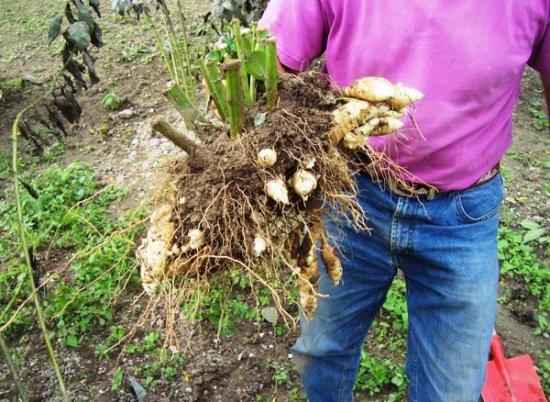
It is worth starting to harvest at the end of November.
To do this you need:
- Cut off the stems, leaving at least 20 cm of shoots;
- Leave the plant like this for several weeks until it is fully ripened;
- Dig up the root vegetables, leaving some for spring harvest.
It is recommended to remove the latter before the soil warms up in spring. If you don’t have time to do this, the tuber will take root and grow again.
How to plant Jerusalem artichoke correctly
Although plant It is not whimsical; when caring for it, you should pay attention to some nuances.
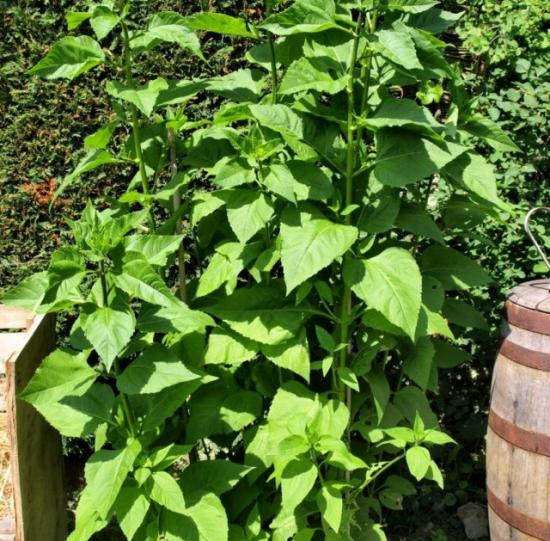
The main ones include:
- In order to root vegetable gave a good harvest, it is recommended to prepare the soil in the fall. To do this, you need to dig up the area to the depth of a bayonet, remove the roots of the weeds, add fertilizers;
- Planting of root crops should be done in early spring with soil warming to 16-18 °C;
- Planting time: first half of April or early May;
- For planting, it is better to choose tubers without mechanical damage or signs of disease. It is important to remember that the quality of the harvest directly depends on the quality of the seed;
- Before planting the beds directly, you need to dig them up again, loosen the soil and level them;
- The row spacing should be 70 cm;
- The depth of the hole for the tuber is 15 cm, the optimal distance between the holes is 30-50 cm.
It is important to adhere to these rules because of its ability to grow up to two and a half meters in height. When caring, it is important to remember that tubers prefer soils with sufficient permeability for water and air.
Recipes for preparing for the winter, is it possible to freeze Jerusalem artichoke
There are a number of ways to harvest root vegetables for the winter. The most common and frequently used include the following.
Drying
Before drying, it is recommended to thoroughly clean and wash the Jerusalem artichoke. It is worth choosing good fruits that have no signs of damage.
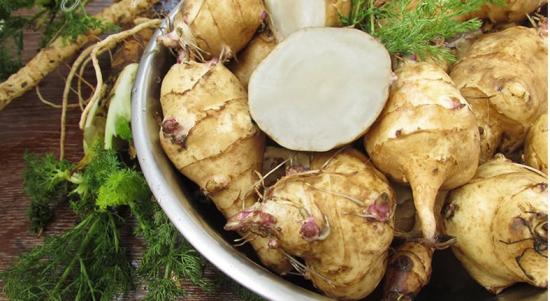
Cut into small thin slices, which need to be laid out in a thin layer on a plate and placed in the fresh air.
It is important that they are not exposed to direct sunlight until the moisture has completely evaporated.
Freezing
To do this, the tubers need to be washed and cut into small pieces. Blanch in milk and curd whey for 5-10 minutes, then let cool and place in the freezer.
Oven drying
There is no need to cut the tubers right away. Before you start drying, you need to blanch them in a mixture of water and a teaspoon of baking soda for nine minutes.
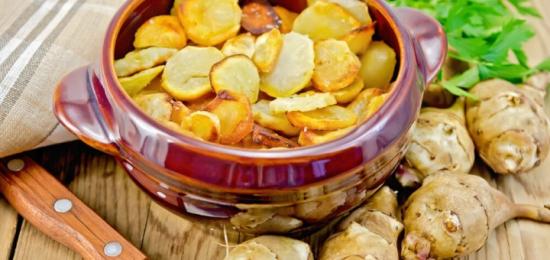
After this, let it cool and cut into thin slices, then lay them out in a thin layer and put them in the oven, preheated to + 60 C and dry until ready.
Then let it cool and place in a glass container, which must then be tightly closed. If this is not done, insects may appear in the dryer.
In some cases, not only pieces of dried fetus, but also powder from them. It is important to remember that Jerusalem artichoke can only be frozen in the freezer, since it will last no more than a month in the refrigerator.
Jerusalem artichoke in folk medicine
Like many other plants, it has found application not only in cooking; its healing properties are widely used in folk medicine.
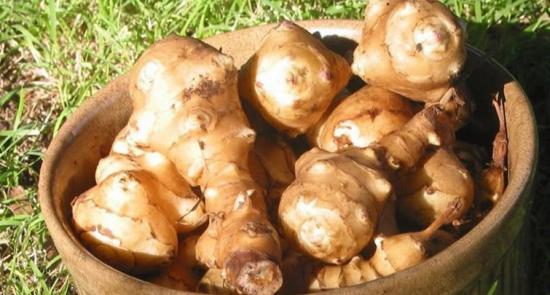
It is used for:
- Necessities for general health - for this it is recommended to eat 50 grams of tubers every day, without adding seasonings and peeling the skins half an hour before the main meal;
- To increase the defense capacity of the immune system, you can prepare a drink from stems and leaves collected during the flowering period and dried. 20 g of greens should be poured into one liter of boiled water and allowed to brew.Filter and drink throughout the day instead of tea;
- Diabetes mellitus - for this you need to collect stems and flowers plants, wash them thoroughly from dust and cut them, preparing a salad seasoned with vegetable oil. You can add other vegetables as desired;
- In case of malfunction of the pancreas, high blood pressure or low hemoglobin, it is recommended to drink decoctions from the tubers. To prepare, you need to pour five tubers with a liter of water and cook over low heat until softened. Drink one glass throughout the day;
- For systematic headaches - it is recommended to grate the fruits, squeeze out the pulp and dilute the juice in a ratio of 1/1 with water. Drink a couple of spoons in the morning before breakfast.
Despite its apparent simplicity, Jerusalem artichoke has many useful properties. Don't underestimate this one root vegetable, if used correctly, it can become not only a tasty, but also a healthy dish.
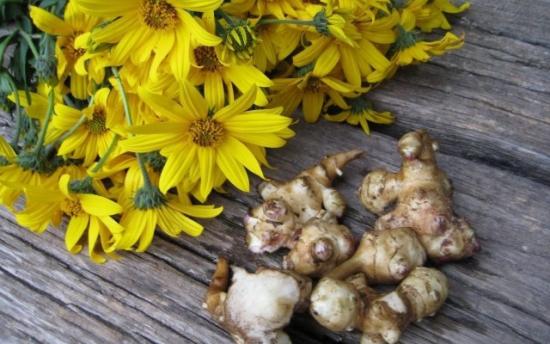
Harvesting and planting plants do not require special knowledge, but you should not treat it with negligence.
If you follow all the rules of planting, harvesting and storage, the root crop will delight lovers with a bountiful harvest and a pleasant taste.
We invite you to watch an interesting video about growing Jerusalem artichoke and its benefits:

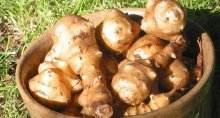

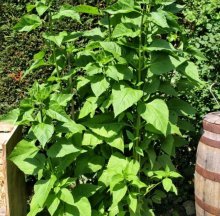
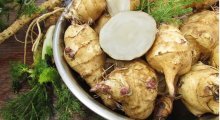

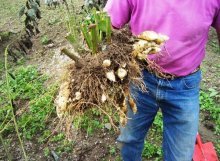
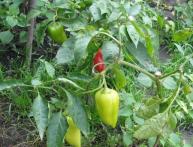
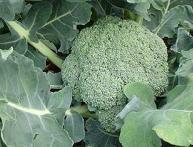

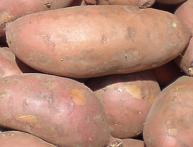
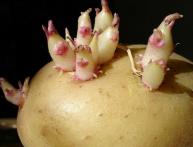

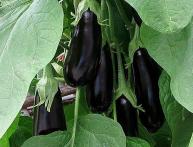
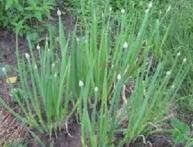
Comments
Is Jerusalem artichoke the same turnip or not? I still can’t figure it out. We were going to plant this plant because my mother was diagnosed with sugar, and Jerusalem artichoke fruits seem to reduce it.
We have Jerusalem artichoke growing and we dig it up completely, burying it at the same time. We mainly use it either fresh or dried to make vitamin teas in winter. Haven't tried freezing.